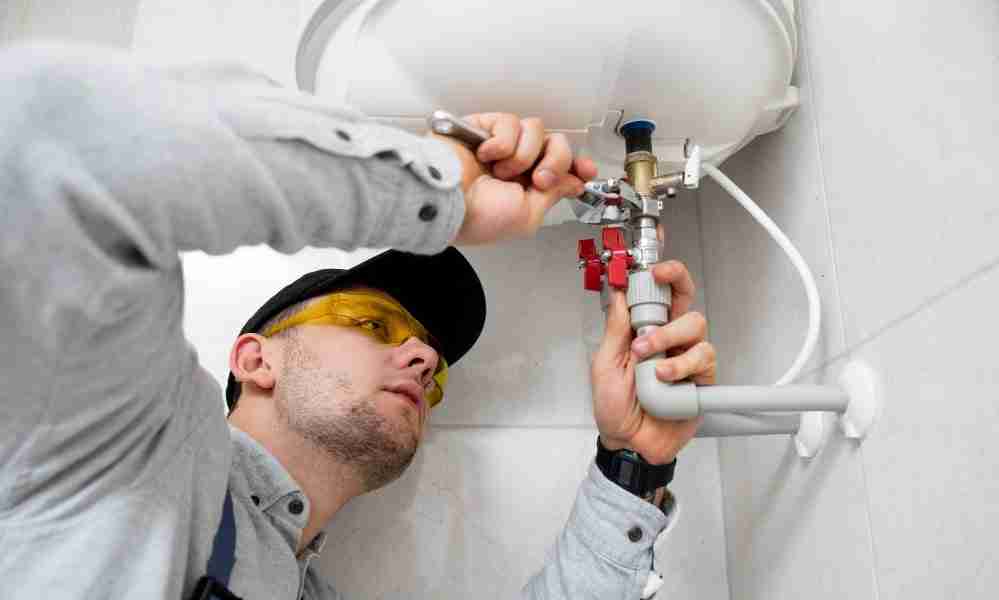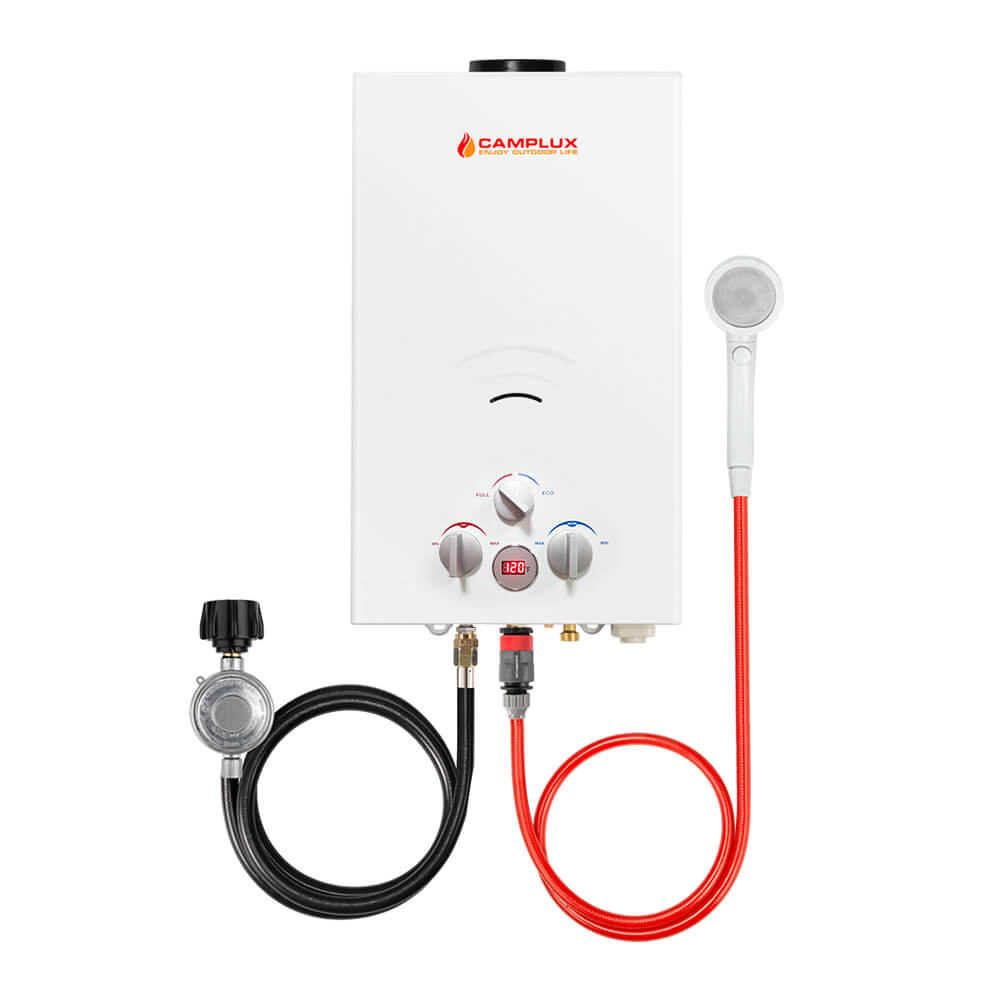Just how do you feel about Why You Should Consider a Tankless Water Heater?

In a world where benefit and efficiency preponderate, it's no surprise that home owners are regularly in search of smarter ways to handle their home's power usage and convenience. One technology that has continuously gotten appeal is the tankless water heater. Yet what exactly makes these systems stand out from the standard tank-based versions a lot of us matured with? Let's dive in and explore the advantages of tankless hot water heater, assisting you make a decision if it's time to make the button in your home.
Introduction
Picture this: you step into the shower after a long day, anticipating a soothing waterfall of hot water, only to be greeted by icy beads due to the fact that the last person used all of it up. Sound acquainted? Conventional water heaters save a fixed quantity of hot water, indicating you go to the mercy of that storage tank's supply. Tankless systems, on the other hand, heat water as needed. Say goodbye to running out mid-shower, no more fumbling with routines just to ensure warm water is offered.
Recognizing Tankless Hot Water Heater
What Are Tankless Water Heaters?
Tankless hot water heater, often known as on-demand or instantaneous water heaters, provide hot water only as it's needed. Rather than keeping gallons of pre-heated water, these units kick right into activity the moment you turn on the faucet. Water goes through a warm exchanger, warming up in real-time, meaning you get an uninterrupted circulation of warm water without the demand for a huge storage tank resting idly by.
Exactly how Do They Vary from Standard Equipments?
Standard heating systems hold a storage tank of warm water, utilizing power to maintain that tank at a regular temperature. Tankless systems remove the standing supply, lowering thrown away power and the large footprint of a big cylinder. Essentially, you're updating from a "accumulation" frame of mind to a "made-to-order" approach.
Common Kinds Of Tankless Units
Tankless water heaters generally can be found in two varieties: gas and electric. Gas designs tend to provide higher flow rates, ideal for bigger families, while electric versions usually serve smaller homes and are normally less complicated to install. In addition, some systems are designed for point-of-use (serving one component) while others can deal with the whole home's hot water requirements.
Trick Advantages of Tankless Water Heaters
1. Countless Warm Water Supply
Ever had to schedule showers so everybody obtains their fair share of hot water? With tankless, that ends up being a thing of the past. As long as the heating system's flow capability isn't surpassed, you can take back-to-back showers without turning into a popsicle.
2. Energy Performance and Cost Financial Savings
Say goodbye to warming a giant tank's well worth of water and maintaining it cozy throughout the day. Tankless heaters lower standby energy losses, which can lower energy bills. While the preliminary price might be greater, the long-lasting savings often warrant the investment.
3. Space-Saving Design
If your home is short on storage space, removing the cumbersome tank maximizes beneficial room. Tankless units are compact and can commonly be installed on wall surfaces, stashed in corners, or mounted in tight energy storage rooms without grabbing all of the whole area.
4. Longer Life-span
A properly maintained tankless hot water heater can outlive its tank-based relative. Typical tanks might last 10-15 years, while tankless models can maintain downing along for twenty years or even more, making them a strong financial investment in time.
5. Improved Water Top Quality
Keeping water in a container can sometimes lead to sediment accumulation or a somewhat "off" preference. With tankless systems, fresh water is heated right away, reducing the opportunities of sediment buildup and potentially using cleaner-tasting water.
Considerations Before Switching
Though the advantages are engaging, it's smart to take into consideration a few elements before fully dedicating.
Preliminary Financial Investment Expenses
Tankless heaters usually include a higher ahead of time price. Between the unit itself and potential installation alterations, the preliminary cost could give you sticker label shock. Yet bear in mind to view it as a lasting investment.
Installation Requirements
Relying on your home's framework, you may need extra electric capacity or gas line upgrades. Ensure you recognize the installment requirements and consult with a professional to stay clear of surprises.
Evaluating Your Home's Water Use Patterns
If your household simultaneously makes use of multiple components with high warm water need, make certain the system's circulation price satisfies your needs. Knowing your usage patterns helps you pick the best size and type of tankless heating unit.
Maintenance and Treatment Tips
Tankless systems are relatively low upkeep, yet they aren't set-it-and-forget-it home appliances.
Routine Cleaning and Descaling
Tough water minerals can build up in the warmth exchanger, influencing effectiveness. Routine descaling (commonly recommended every year) keeps the device performing at peak performance.
Annual Professional Evaluations
A yearly checkup from a specialist makes sure small issues are caught early. They'll assess the device's performance, look for leakages, and aid maintain optimal effectiveness.
Making Sure Correct Ventilation
For gas versions, appropriate air flow is necessary to securely remove exhaust gases. Make sure airing vent systems are clean and properly set up to avoid any possible safety hazards.
Contrasting Different Brands and Models
Not all tankless hot water heater are created equivalent.
Researching Reputable Suppliers
Look for respectable brands with a history of producing high quality units. A reliable maker often provides better consumer assistance and longer service warranties.
Reading Evaluations and Customer Feedback
User testimonials and feedback from next-door neighbors or good friends that have actually gone tankless can provide valuable understandings. Often, real-life experiences can be much more informing than advertising sales brochures.
Installation: DIY or Specialist?
While some property owners cherish taking on tasks themselves, tankless setup may not be the best time to burst out the tool kit.
Pros and Cons of DIY Installation
A do it yourself mount can conserve cash, however it includes dangers. Inaccurate installment can lead to ineffectiveness or safety and security problems. If you come in handy and have experience, it might be possible-- however proceed with caution.
When to Call an Expert Plumbing
For most, calling a pro makes certain every little thing's done correctly. An expert plumbing professional recognizes regional codes, sizing requirements, and venting criteria, decreasing the threat of accidents.
Maximizing Effectiveness
You have actually bought a tankless unit-- now maximize its efficiency.
Ideal Temperature Settings
Lots of people establish their units between 120-140 F. Changing the temperature can enhance comfort and financial savings. Experiment to discover a wonderful place that does not lose energy.
Coupling With Low-Flow Fixtures
Wish to stretch your device's abilities? Consider installing low-flow showerheads and taps. They lower water use, permitting your tankless system to supply a constant stream of hot water without straining.
Ecological Effect
Tankless hot water heater align with greener living goals.
Minimized Carbon Footprint
By utilizing less power and just heating water as required, tankless systems can decrease your home's carbon impact, minimizing your environmental impact.
Conserving Natural Resources
Much less power usage and less thrown away hot water convert right into fewer natural resources being used, an ecological win-win.
That Profits A Lot Of from Tankless Heating units?
The appeal of tankless heating units is that they can suit a variety of houses.
Huge Households vs. Single Occupants
Big families might enjoy the limitless hot water supply, while solitary passengers value the power savings from not heating an entire tank for simply a single person's early morning shower.
House Owners with Minimal Room
If your home is short on square video footage, losing the cumbersome storage tank frees up area for other fundamentals-- or perhaps just more breathing space.
Eco-Conscious Consumers
Going tankless aligns with environmentally friendly values, guaranteeing you're not wasting energy or resources.
Future Fads in Tankless Hot Water Heater
The globe of home devices is ever-evolving, and tankless hot water heater are no exception.
Smart Home Combination
Imagine readjusting your hot water heater's temperature using an application or getting maintenance signals on your phone. As clever home tech advances, we'll see even more connection and ease.
Advancements in Innovation
R&D is constantly enhancing warm exchangers, making units a lot more effective and resilient. Future versions could be also quieter, extra compact, and better fit for differing climates.
Conclusion
Picking a tankless hot water heater is more than simply upgrading your home's hot water system; it's purchasing long-lasting convenience, power efficiency, and a greener way of living. By considering your house's water use, being mindful of installment requirements, and dedicating to normal upkeep, you can enjoy a consistent stream of warm water without the luggage of a cumbersome tank. As modern technology develops, you can eagerly anticipate also smarter, a lot more efficient tankless solutions that not just make your life less complicated but additionally benefit the earth.
Why You Should Consider a Tankless Water Heater for Your Home
Energy Efficiency and Cost Savings
Tankless water heaters, also known as on-demand water heaters, heat water only when needed. This means they don't waste energy keeping a tank of water hot constantly. This efficiency translates into substantial cost savings on your monthly energy bills.
Endless Hot Water Supply
One of the significant advantages of tankless water heaters is their ability to provide a continuous supply of hot water. Traditional tank water heaters have a limited capacity and can run out of hot water, especially during peak usage times. In contrast, tankless water heaters can provide an endless stream of hot water, making them ideal for larger families or homes with high water usage.
Space-Saving Design
Tankless water heaters are compact and take up significantly less space compared to traditional tank heaters. They can be installed on walls, under cabinets, or even outside, freeing up valuable space in your home. This makes tankless water heaters a great option for smaller homes or properties with limited space for a traditional water heater.
Longer Lifespan and Lower Maintenance
Tankless water heaters typically have a longer lifespan compared to traditional tank heaters. They can last up to 20 years or more with proper maintenance. Additionally, tankless systems are designed with replaceable parts, which can extend their lifespan further and reduce long-term maintenance costs.
Environmentally Friendly
Reducing energy consumption not only saves you money but also benefits the environment. Tankless water heaters contribute to a smaller carbon footprint by using less energy to heat water. Their energy efficiency and ability to minimize standby heat loss make them an eco-friendly choice for environmentally conscious homeowners.
Customized Temperature Control
Tankless water heaters offer precise temperature control, allowing you to set the desired temperature to meet your specific needs. This level of customization ensures you always have water at the perfect temperature for your comfort and usage requirements.
https://beantownservices.com/blog/consider-tankless-water-heater-for-your-home

I'm certainly very occupied with Why You Should Consider a Tankless Water Heater and I hope you enjoyed reading the blog entry. Do you know about someone else who is truly interested in the subject? Take a moment to share it. We love reading our article about Six Benefits of a Tankless Hot Water Heater.
Schedule Service Now
Comments on “A Guide To Enjoying The Benefits Of Tankless Water Heaters”